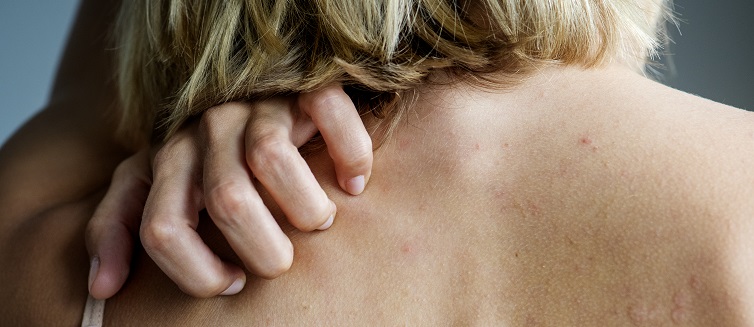If you have a rash that appeared suddenly or recurs intermittently, you may be unsure of its cause. Rashes are associated with everything from scabies to allergic reactions to lupus. A lupus rash, like all types of rashes, needs specialized treatment.
Never Miss a Beat!
Subscribe to Our HealthBeat Newsletter!
Thank you for subscribing!
You can now select the specific newsletters you'd like to receive.
You are already subscribed.
Subscribe to more newsletters in our email preference center.
Sorry, an error occurred. Please try again later.
Get Healthy Tips Sent to Your Phone!
What Is Lupus?
Before discussing lupus rashes, it’s helpful to know more about lupus. This chronic inflammatory disease sometimes affects only the skin, but it also can affect other organs and systems, including the joints, brain, heart, blood, and kidneys.
Antibodies that normally protect the body against organisms like bacteria instead attack healthy tissues. With lupus, the body experiences flares, which are periods of illness followed by periods of inactivity, known as remission. These flares can affect lupus rashes as well.
Lupus Rash Symptoms
A rash, generally categorized as an irregularity in the skin’s color, appearance, or texture, also may be itchy. There are three types of lupus rashes:
- Butterfly Rash – typically occurring on the nose and cheeks, this rash resembles a butterfly and can be brought about by medication, exposure to sunlight, or infection.
- Discoid Rash – this rash is often raised and scaly and might even leave scars.
- Sun Rash – also called subacute cutaneous lupus erythematosus rash, which appears on sun-exposed skin and can form ring-like lesions and may resemble psoriasis.
Keep in mind that any lupus rash can worsen with sun exposure.
Treating a Lupus Rash
The Lupus Foundation of America says that 66 percent of those with lupus will develop some form of skin disease. The treatment of choice depends on the type of lupus and the person’s symptoms.
Medicines for treating a lupus rash
Treatment for a lupus rash may include using topical medicine, such as a steroid gel or cream. Antimalarials, which are typically used to treat malaria, may also be used to treat lupus. These medicines include:
- Hydroxychloroquine or Quinacrine
- Methotrexate
- Mycophenolate mofetil
- Prednisone
- Azathioprine
Preventing Lupus Rashes
Staying in the shade, using a sunscreen, and avoiding ultraviolet (UV) light exposure to protect your skin also can help prevent a lupus rash. The Lupus Foundation of America notes that 40 percent to 70 percent of those with lupus find that UV exposure makes their skin worse.
The skin rash and other lupus symptoms are sometimes caused by medicine, so it’s a good idea to tell your doctor about any medicines you’re currently taking. Your doctor also can recommend skin care products to help you avoid skin involvement from lupus.
Early diagnosis and treatment of lupus won’t cure the disease, but it will help you manage the symptoms and decrease the chance of permanent tissue damage.
Lupus is best treated by a specialist. If you’ve been diagnosed with lupus, consider scheduling an appointment at the UPMC Lupus Center of Excellence, at 412-586-3550.
Editor's Note: This article was originally published on , and was last reviewed on .
About UPMC
Headquartered in Pittsburgh, UPMC is a world-renowned health care provider and insurer. We operate 40 hospitals and 800 doctors’ offices and outpatient centers, with locations throughout Pennsylvania, Maryland, New York, West Virginia, and internationally. We employ 4,900 physicians, and we are leaders in clinical care, groundbreaking research, and treatment breakthroughs. U.S. News & World Report consistently ranks UPMC Presbyterian Shadyside as one of the nation’s best hospitals in many specialties and ranks UPMC Children’s Hospital of Pittsburgh on its Honor Roll of America’s Best Children’s Hospitals. We are dedicated to providing Life Changing Medicine to our communities.
